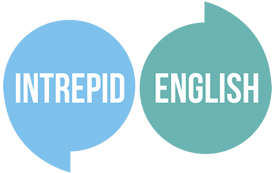An Introduction to Verb Tenses
Verb tenses are the grammatical equivalent of time travel.
Who needs a time machine when you can travel to the past, present, and future all in one sentence! Well, sort of. Let’s just say, you’ll at least sound like a time traveller to anyone listening.
What is a verb tense?
A verb tense indicates the time at which the action or state of being described by the verb occurred, is occurring or will occur.
By modifying a verb into the correct tense, we can communicate whether something happened in the past, is currently happening in the present, or will happen in the future.
How many verb tenses are there in English?
Twelve tenses in total.
Four tenses for the past, present and future. This might seem like a lot at first but we can break them down into these 4 categories:
Simple (past, present, future)
Continuous (past, present, future)
Perfect (past, present, future)
Perfect Continuous (past, present, future)
Why should I learn them?
Learning verb tenses is important for these three key reasons.
1. Communication through speaking and writing.
Verb tenses are crucial for conveying meaning and avoiding confusion. Different verb tenses are used for different purposes, and understanding them can help you speak and write more clearly and effectively. Being able to use the correct verb tense is essential for clear and effective communication in both spoken and written English.
2. Comprehension through listening and reading.
Understanding verb tenses is also important for understanding correctly what others are saying or writing. Knowing verb tenses will help you understand what is happening in the speech or text and help you follow the dialogue or story. If you don’t understand the verb tense being used, you may misunderstand the intended meaning of the sentence.
3. Academic and professional settings:
In academic or professional settings, correct usage of verb tenses is often expected. Improper verb tense usage can create confusion or even convey a lack of professionalism.
So if you want to improve your English skills and be more successful in your communication and comprehension then it is essential to invest some time into learning verb tenses!
But How?
This May, Intrepid English is holding the Skill Up: Verb Tenses course. This will be the perfect introduction and foundation to using English tenses with ease! Each week we will take you through a specific tense and explain its formation and uses in the past, present and future. Master these verb tenses and you can start to speak English with more fluency and more importantly, more confidence!
Week 1 – Simple
Week 2 – Continuous
Week 3 – Perfect
Week 4 – Perfect Continuous
This intensive online course includes all this:
➡️ 4 x one-hour group sessions with an experienced and friendly Intrepid English teacher.
➡️ Complete an extensive overview of the twelve English verb tenses, when and how to use them. ⏲️
➡️ Learn fun and functional English vocabulary and phrases to incorporate into your conversations and sound more like a native speaker!
➡️ Learn from the best! Enjoy a masterclass from a grammar expert!
➡️ Downloadable worksheets and audio materials to take away with you.
➡️ Share ideas and questions with fellow students in the Intrepid English Community.
Are you ready to master verb tenses, the building blocks of English, and start speaking with fluency and confidence?
For more information about how we can help you smash your English goals, or if you have any questions, please don’t hesitate to contact us at hello@intrepidenglish.co.uk
P.S. Why did the time traveller only speak in the present tense?
Because he was always living in the moment!
